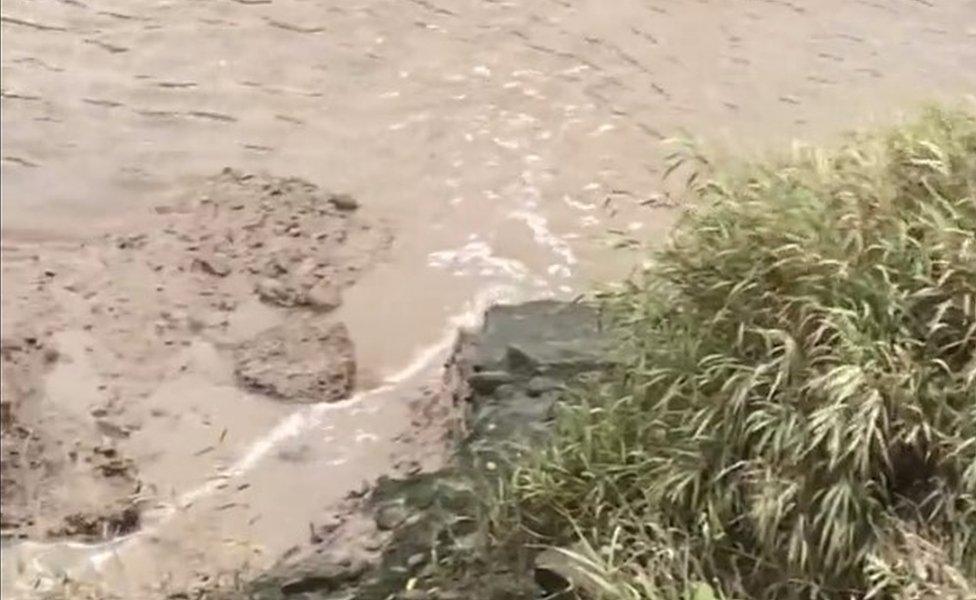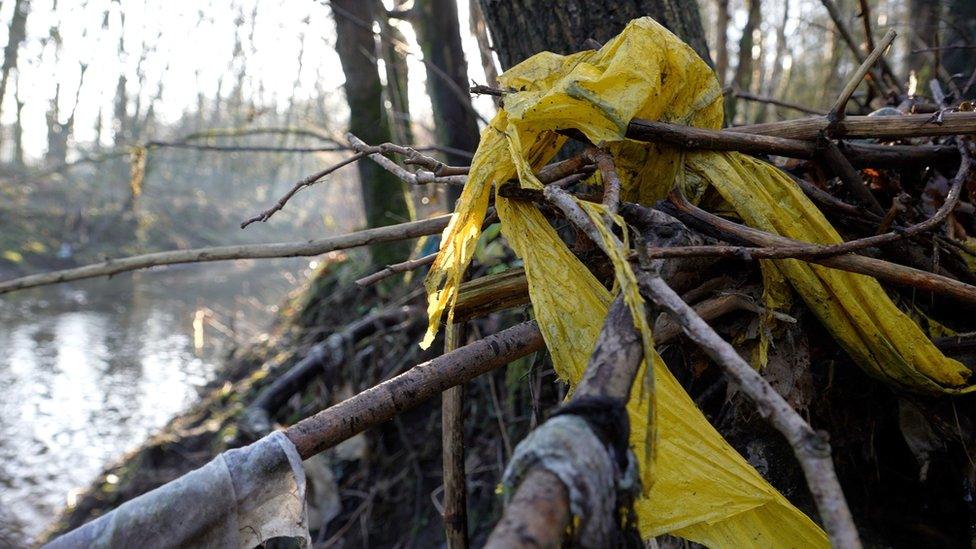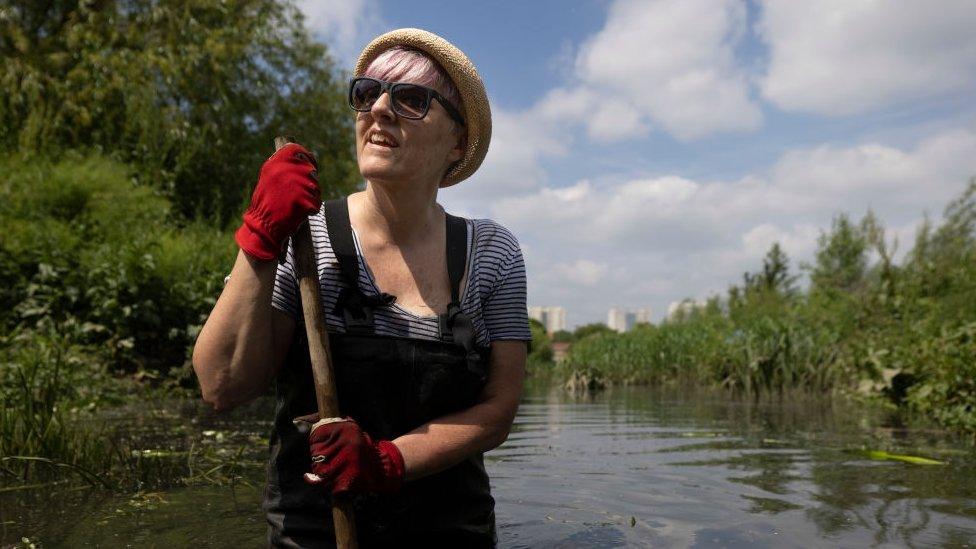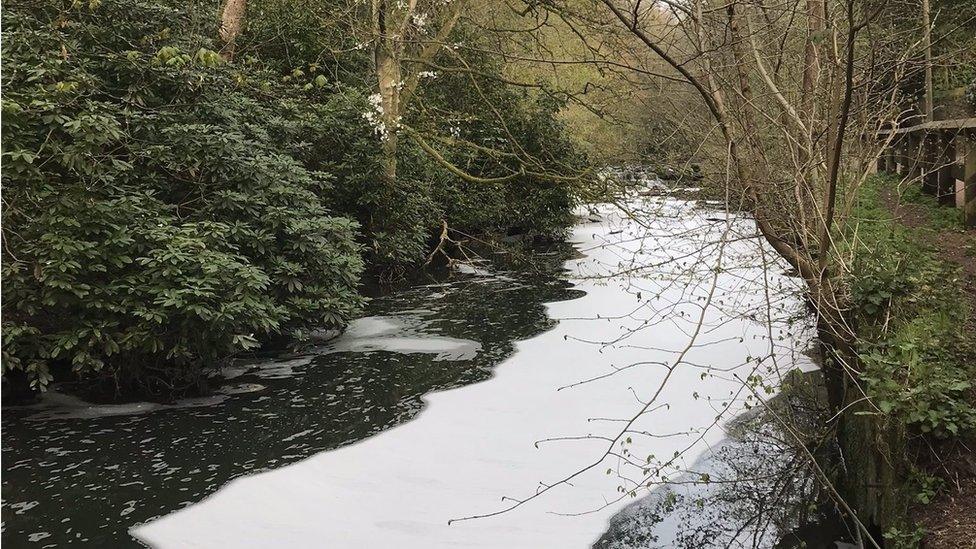River Tyne probe as 'sulphur-stinking' waste seen in river
- Published

The discharge "really, really stank of sulphur", Graeme Peacock said
Authorities are investigating the cause of waste - described as "stinking of sulphur" - in a major river.
Photographer Graeme Peacock filmed the dirty water pouring into the River Tyne between Wylam and Newburn on Thursday morning.
He said it was "horrendous" and the "worst discharge I've ever seen in 20 years at that particular point".
Northumbrian Water (NWL) said it had not come from any of its nearby water treatment works.
The Environment Agency (EA), which is responsible for monitoring water quality, said it was investigating its cause and impact.
Mr Peacock had been walking his dogs on the Wylam Riverside Walk, at Heddon-on-the-Wall, and said other dog walkers "were all horrified" by the amount of discharge.
Allow X content?
This article contains content provided by X. We ask for your permission before anything is loaded, as they may be using cookies and other technologies. You may want to read X’s cookie policy, external and privacy policy, external before accepting. To view this content choose ‘accept and continue’.
There were no obvious signs of human or sanitary waste but there was "a very, very dominant smell of sulphur, rotten eggs smell" and a lot of waste solids, he said.
Water companies are permitted to discharge waste water in "exceptional circumstances", such as severe storms, but have been heavily criticised for using their exemptions too often.
However, Mr Peacock said there had been no rain for 48 hours and said EA and NWL officials had told him they were considering the possibility a business or individual might have flushed waste through the pipes illegally.
He said they had been "very prompt and responsive".
NWL said its equipment in the area had been checked and was "working as they should be".
A spokesperson said: "We are now working with the EA to check the surface water sewer for any local farming activity or highway drainage connections that could have caused what was seen in the video."
Mr Peacock said there had been a number of similar occurrences along the river over the previous few weeks, which the EA was investigating.
People were keen to keep the river "as pristine as we possibly can", because it was home to kingfishers, otters, seals and, currently, 11 swan cygnets, he added.

Follow BBC North East & Cumbria on Twitter, external, Facebook, external and Instagram, external. Send your story ideas to northeastandcumbria@bbc.co.uk, external.
- Published26 August 2022

- Published19 January 2022

- Published13 January 2022

- Published15 May 2021
